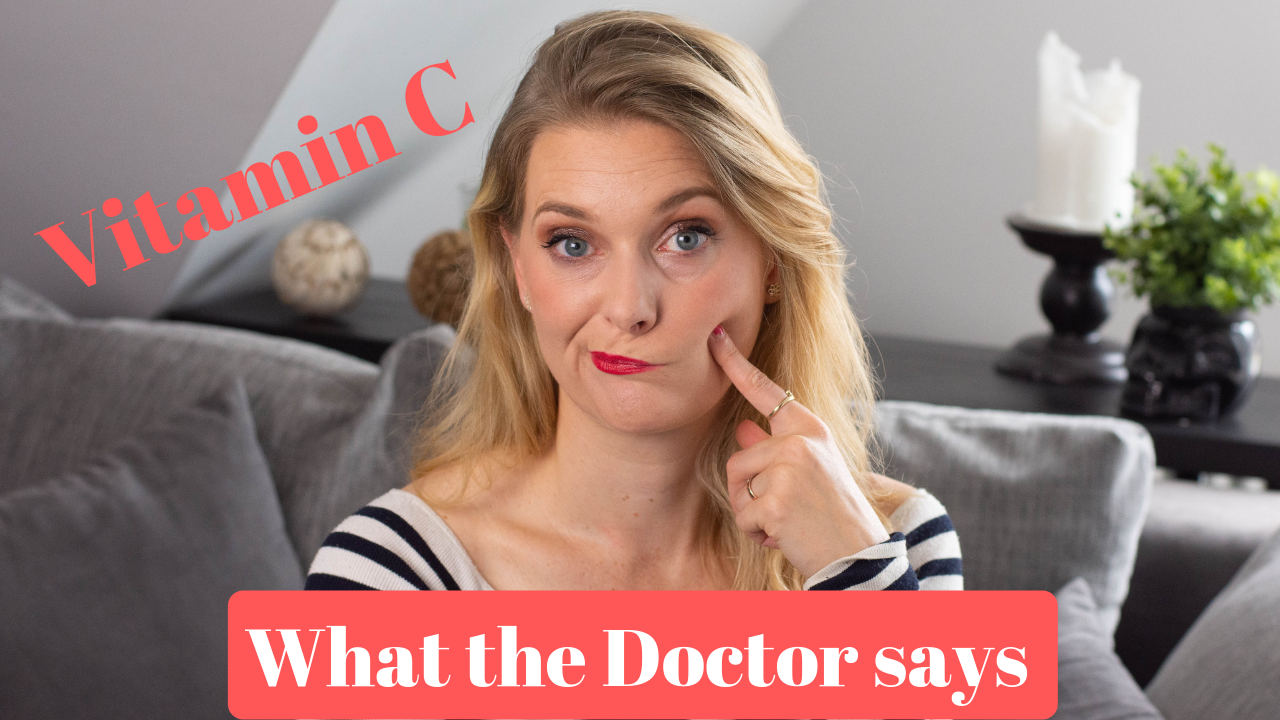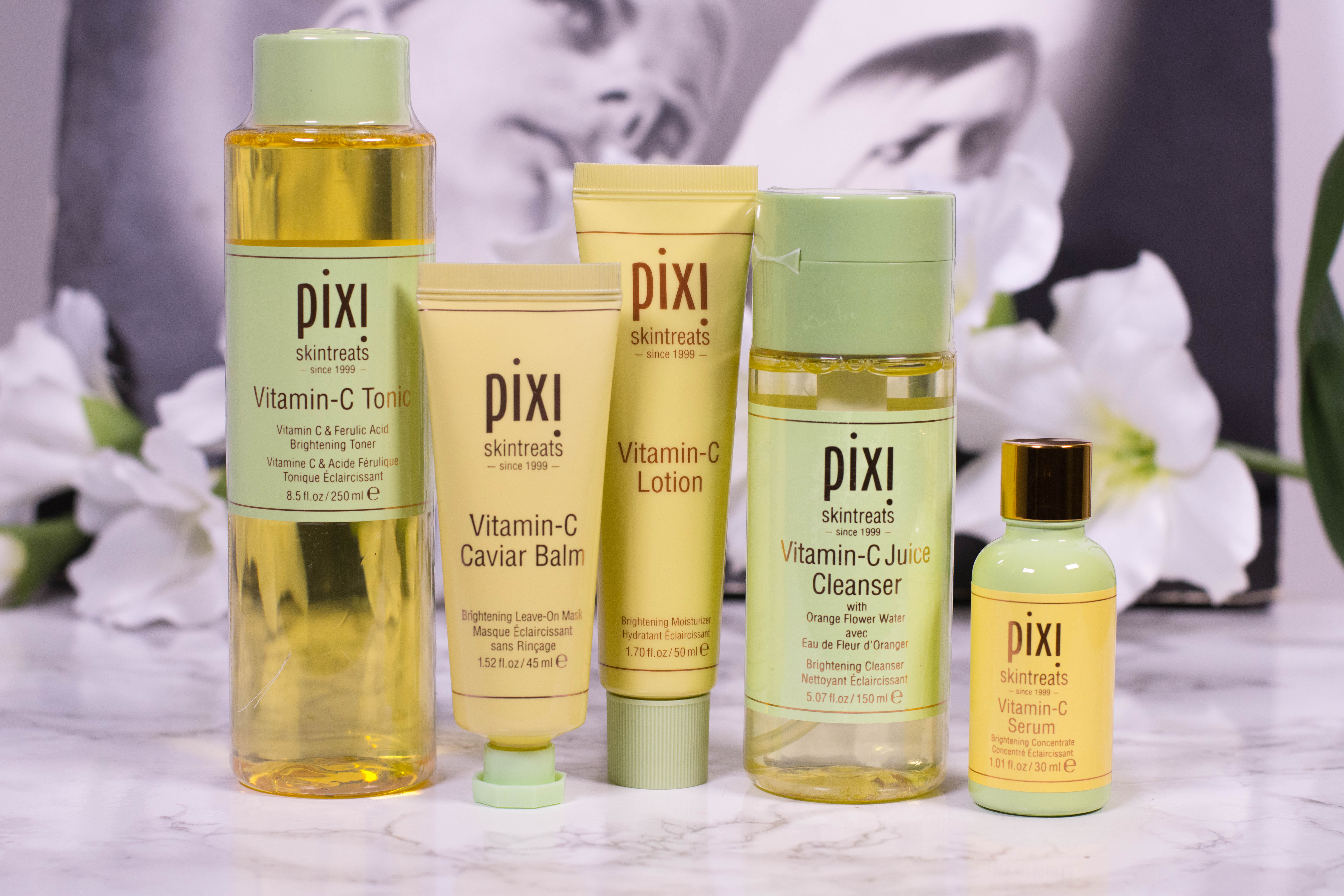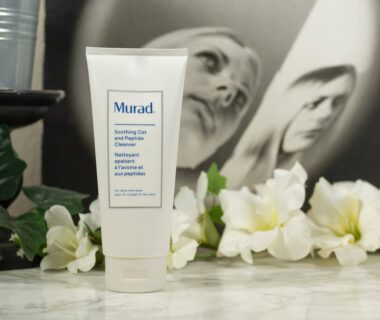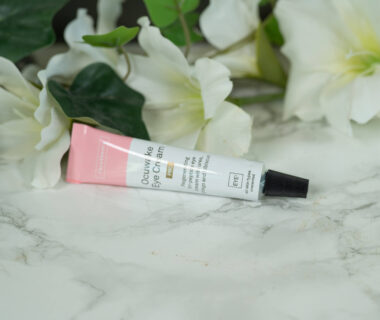I sound like a broken record, I know, but I really want to talk some more about Vitamin C and everything there is to know about it.
Why? Well, because it is easily one of my favorite skincare ingredients, and one that I recommend over and over again. You remember that Instagram Stories Template popular in the last few weeks that made you choose between two ingredients, always pairing the ones that you picked against each other until you were left with one hero ingredient? Vitamin C was always among my Top 5.

And for good reason, Vitamin C does many amazing things for the skin. So I listed it in my “Which ingredients work for anti-aging” blog post, recommended it early on in my “When should I start using anti-aging products” post and reviewed numerous products featuring it.
But I understand that things can be a little confusing.
Because the “original” Vitamin C, L-Ascorbic Acid, is notoriously unstable, potentially irritating and loses its power quickly when exposed to light and water. And in order to prevent that, there are a ton of different Vitamin C derivates out there, all with different names and slightly different effects.
So which one of them is best for you?
What does Vitamin C do for the skin?
It is an antioxidant.
We all have heard that, but what does it mean?
This is a VERY short explanation, I can do a video on the topic if you want me to.
Every second there are reactions in your skin where things are oxidized. That is necessary for cellular reactions, but also happens due to so called “free radicals” that develop through stress, UV light and other external factors. These free radicals can do damage to your cells and can be caught off by antioxidants, which is why we want antioxidants in our skincare to prevent premature aging.
It supports collagen production
Now other than what I have read online, the Vitamin C does not itself trigger new collagen being build.
It is however a necessary cofactor for around eight different enzymes that build collagen and stabilizes them through hydroxylating the fibers, meaning that without Vitamin C, you are not able to build fully functional collagen fibers, leading to scurvy if you lack Vitamin C in your nutrition.
So if you want healthy, firm collagen fibers in your skin, you better make sure you have enough Vitamin C.
It helps fight hyperpigmentation
Dark spots on our skin are melanin, a dark pigment that makes us tan, but can be distributed unevenly.
The causes for that uneven distribution differ, but Vitamin C has been shown to help no matter the underlying cause. It will both inhibit the production of melanin by inhibiting the enzyme Tyrosinkinase, so less dark spots appear in the first place, and lighten the appearance of already existing brown spots through reversing the Dopaquinone back (dark) back to Dopa (colorless). That takes a long time, but will happen eventually.
It helps with a healthy skin barrier
This is the one with the weakest evidence yet, but some data suggests that Vitamin C increases Ceramide levels in the skin, promoting a healthy skin barrier. (Damaged skin barrier – cause of acne, irritation and atopic dermatitis? )

Which concentration of Vitamin C is the best?
As irritation does increase with concentration, the best concentration for you is the one you can use without reacting to it.
As a rule of thumb, a concentration of around 15% to 20% seems to be the most effective. Above a concentration of 20%, the effectiveness actually decreases, so I personally don´t recommend using higher as you get an increased risk of irritation with a decreased effect, so why bother?
If you go much lower, like 5%, you will most likely not experience any irritation at all, but I doubt that you will have a noticeable effect on your skin either.
Why are there so many different forms of Vitamin C?
Most of the data presented above is from L- Ascorbic Acid which, as I mentioned before, comes with a few downsides, the main one being that it needs a pH of around 3.5 to remain stable. That low pH can be pretty irritating, limiting its usage for some people.
It is also very reactive, so getting it into a formula and staying active over a several weeks is tricky as well.
So companies developed other forms of Vitamin C that were more stable. Like…
- Sodium Ascorbyl Phosphate (SAP), which is stable at a pH 7, but seems to be less effective than Ascorbic Acid
- Magnesium Ascorbyl Phosphate (MAP), again stable at a pH 7, which seems to be as effective as Vitamin C in terms of increasing collagen synthesis and reducing hyperpigmentation
- 3-O-Ethyl Ascorbate, which seems to be stable at different pHs, but has so far only shown to reduce hyperpigmentation
- Ascorbyl Tetra-Isopalmitate, stable at pH of 5, and fat soluble, so potentially better for oily skin types, which seems to be most effective at collagen production
- Ascorbyl Glucoside, stable at different pHs, with limited data on effectiveness, but promising results on reducing hyperpigmentation.
I am not in the position to tell you which one of the vitamin C forms will be best for your individual skin, but as data for all the Vitamin C derivates mentioned before is limited, I would whenever I get the chance always go with the classic Ascorbic Acid.
Please note that “limited data” does not imply that something is ineffective, it just means that it hasn´t been studied as excessively as something else. Absence of proof is not proof of absence!

Are there other ways to increase Vitamin C stability?
Thankfully, there are other ways to make Ascorbic Acid more stable other than a low pH, for example pairing it with Ferulic Acid and Vitamin E, eliminating the need for water in the formula as done with The Inkey List Vitamin C Serum, which is simply Ascorbic Acid and silicones, or providing the Ascorbic Acid in a powder form to mix fresh or in individual sachets.
Is Vitamin C in skincare really effective?
When talking about Vitamin C and other antioxidants in skin care, it is important to know that not everyone agrees on the benefits of topically applied antioxidants. Some experts will claim that there is not enough proof of actual absorption into the skin and that the unstable form of the well-researched Ascorbic Acid will prevent it from staying effective in a skin care product.
Creating a stable and effective Vitamin C product is apparently pretty costly, so many formulas on the market are either too low in concentration or the added Vitamin C is rendered ineffective even before applied on the skin, so you are most likely just wasting your time and money.
I don´t completely agree with that, but I do advise you to be careful when choosing your product and look for concentration, packaging and other ingredients and to make sure you get your oral uptake of Vitamin C through nutrition rather than focussing solely on products. Skin care is always only one part on your way to healthy skin!
So tell me what do you think: Vitamin C yay or nay?



